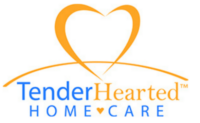Beating the Heat
Beating the Heat
The summer months are upon us, and with that we can expect to see longer daylight and higher temperatures. It’s critical that you guard your health during these days by using caution in the heat and finding ways to stay cool. This is true in particular if you or your loved one is 65 or older.

Can’t Bear The HeatID: 189487
© Andreas Steinbach | Dreamstime Stock Photos
Don’t sweat the heat–consider these tips and advice for having a fun summer without losing your cool, according to the Center for Disease Control (CDC).
Tips for Being Totally Cool
1. Air Conditioning is Your Friend: While it is helpful to have fans to circulate the air, the truth is this alone doesn’t change the temperature of a room. If you don’t have proper air conditioning for your home, make it a priority to add that in to cool things down.
2. Drink Water, Lots of Water: During the summer months, you will burn off a lot of water through sweat and simply because of the heat that will surround your body. Critically important is a need to stay hydrated–water is the best hydrator!–so that you don’t end up with heat stroke and dehydration. Stay ahead of the heat!
3. Quick Tips: Every day, keep hyper aware of what your body needs. A few other tips that will keep your body temperature normalized: consider taking a cool bath or shower, wearing looser, lighter weighted and light-colored clothing, and limit the amount of time you cook with your oven or stove. Additionally, watch your local news for any relevant air quality and weather warning updates that affect you or your loved one.
Don’t let the heat beat you this summer. Keep track of these things will help you stay two steps ahead of the heat and on the path for an enjoyable summer.
Overheated?: Advice for Acting Fast and Saving a Life
Sometimes, in spite of our best intentions and precautions, we find ourselves experiencing signs and symptoms of being ill from overheating.
In the case of Heat Exhaustion: If you experience the following symptoms, the CDC recommends that you lay down in a cool area, loosen your clothing, hydrate with small sips of water, and use cool cloths to lower your body temperature. Anyone who is excessively vomiting should medical attention.
- Excessive sweating
- Weakness in limbs or in general
- Cold, pale, or clammy skin
- Irregular pulse (slower, weaker)
- Nausea or vomiting
- Feeling faint/fainting
In the case of Heat Stroke: If you experience the following signs, the recommendation by CDC is that you call 911 and IMMEDIATELY seek medical attention. Do not give fluids, but do get them some place cool as soon as possible. This is a medical emergency and should be taken seriously!
- Extremely high body temperature (103F or higher)
- Irregular pulse (too fast)
- Heated, reddened skin
- Unconscious
Don’t forget to check in on your friends and neighbors during the hotter days, and help each other keep safe and cool.
- Six Areas Your Loved One May Need Help With During the Early Stages of Alzheimer’s Disease - May 8, 2025
- What Harms Senior Mental Health? - April 23, 2025
- How 24-Hour Home Care Can Protect Your Senior Parent - April 4, 2025

